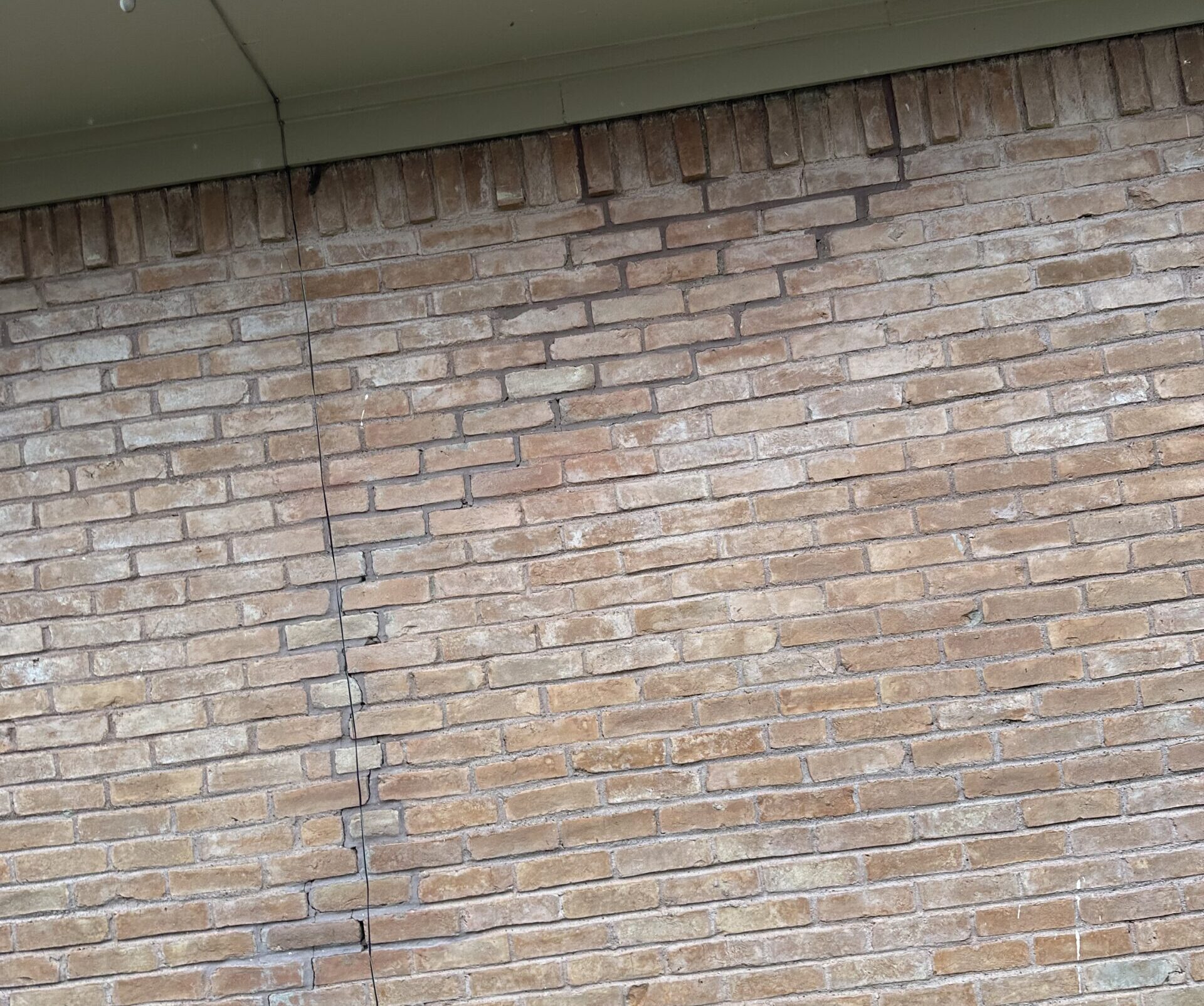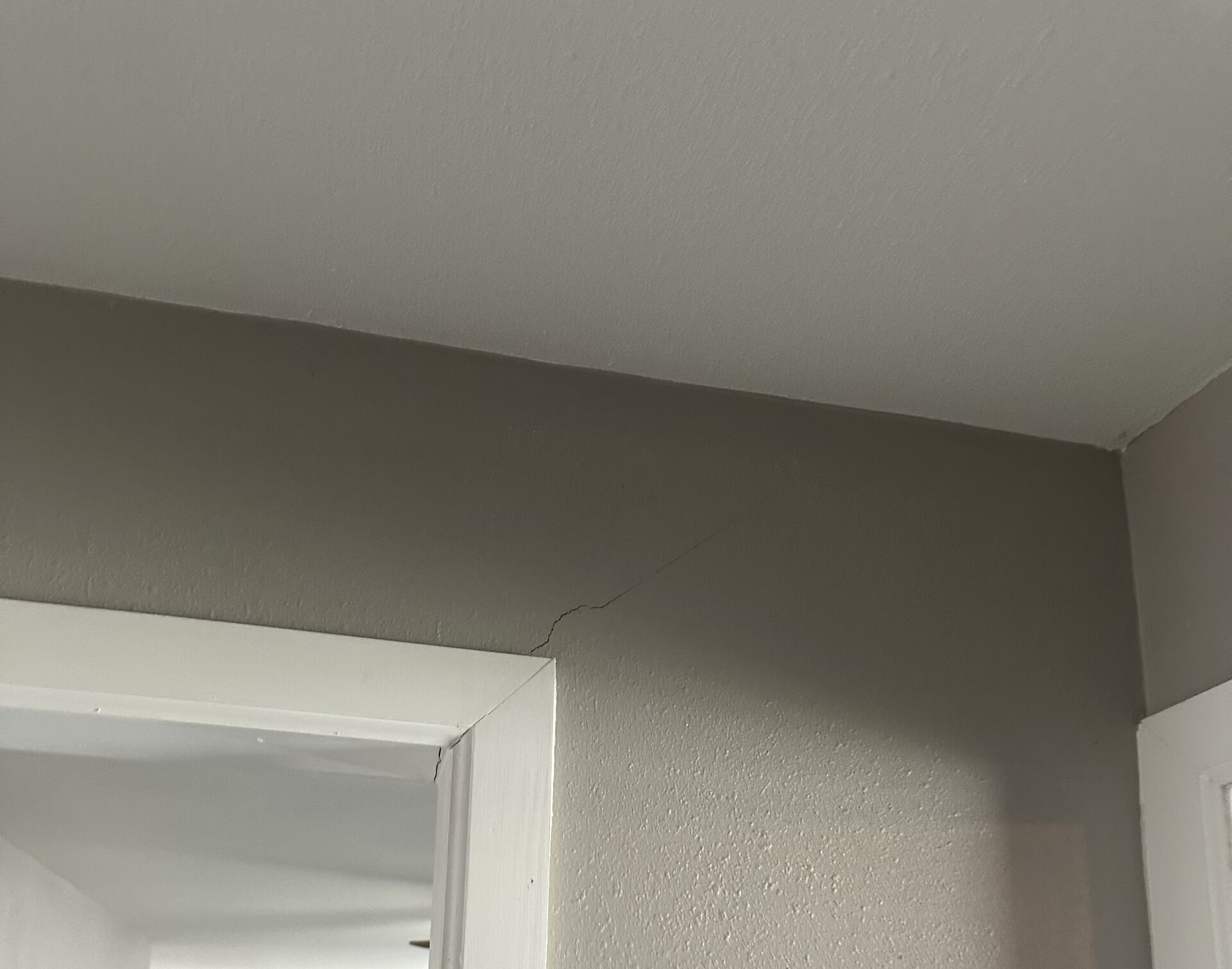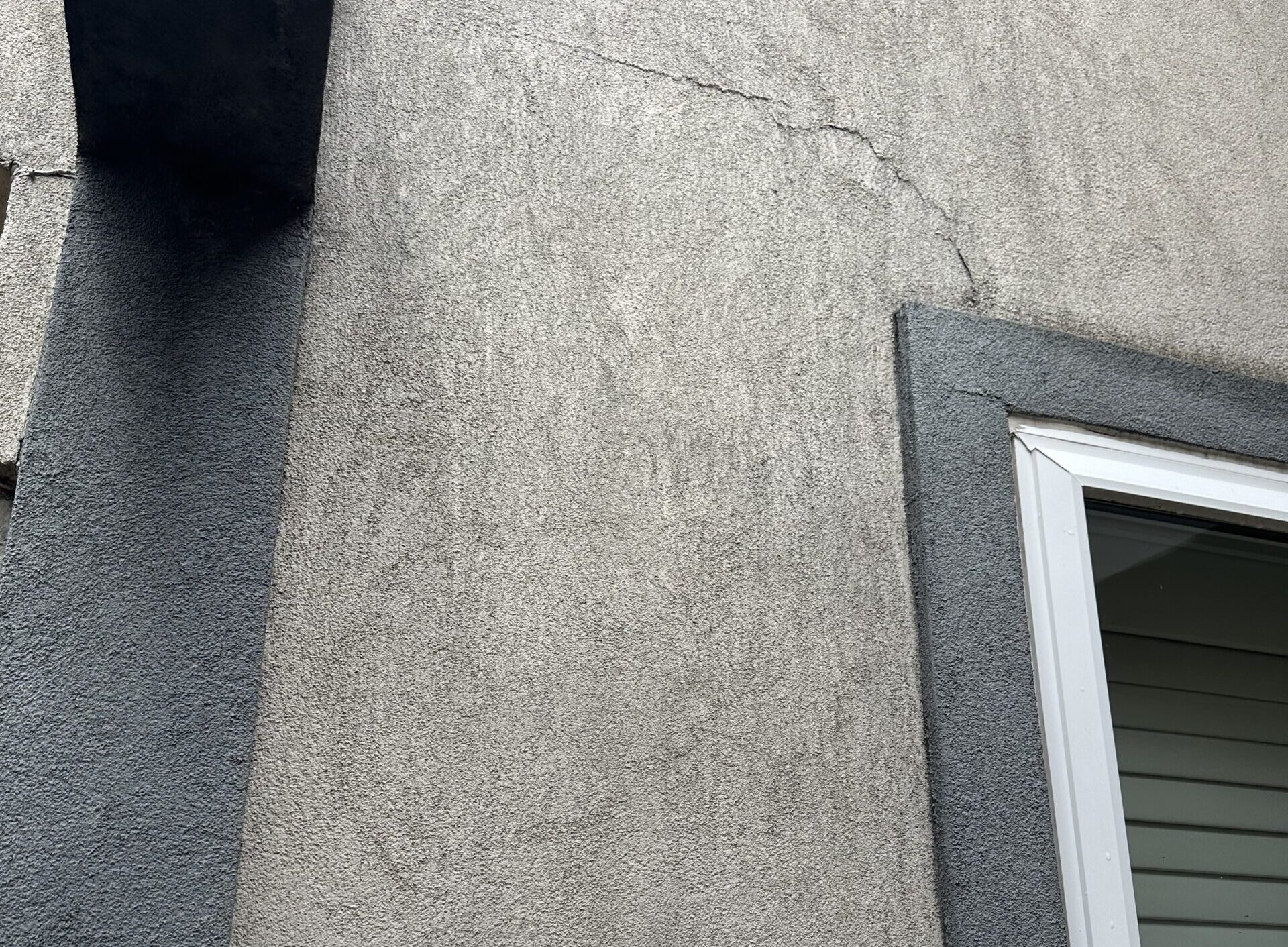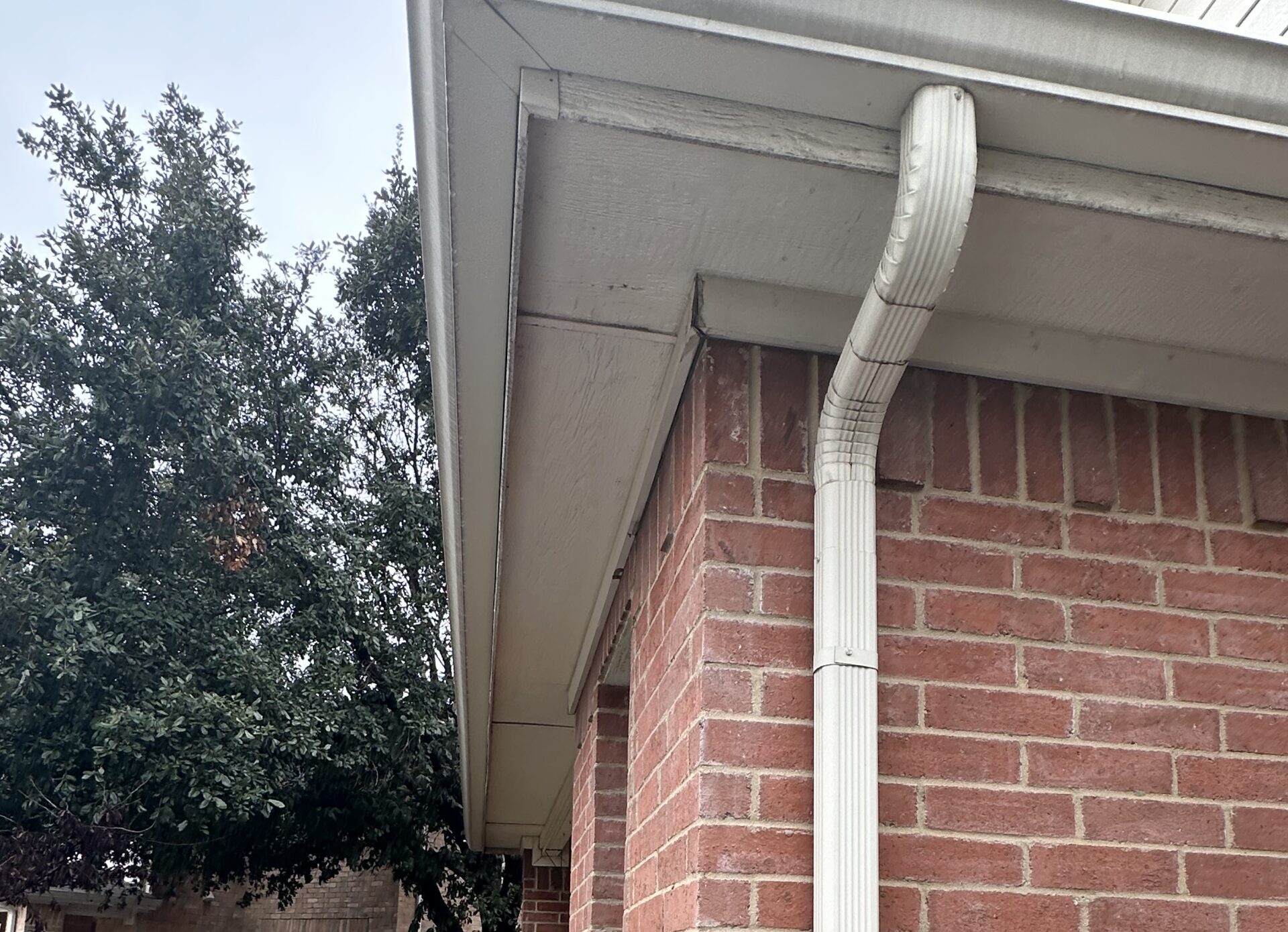
Exterior Brick Cracks
If you have a brick home and notice either horizontal or vertical cracks on the exterior of your home, this is a strong signal that your home is experiencing foundation issues and needs to be inspected by a professional.
Our comprehensive free foundation evaluations give you peace of mind knowing your structure is sitting on a firm foundation. If we do find any issues, you can trust we will only suggest repairs your foundation actually needs.
Call us: 972-251-0018
Email us: info@pinnaclefoundationrepair.com
Welcome to Pinnacle Foundation Repair’s Dallas location, strategically nestled in the heart of the vibrant Dallas-Fort Worth Metroplex. We take pride in contributing to the well-being of this dynamic city and its diverse neighborhoods. Dallas, a cornerstone of economic growth and cultural richness, presents unique challenges for foundations due to its soil composition, which is mostly clay. It’s got a quirk – it loves soaking up water. So, when it rains hard, the soil swells up, and when it’s dry, it shrinks back down.
At Pinnacle Foundation Repair, we understand the unique challenges posed by the Dallas soil and climate, and our specialized team is well-equipped to address them – providing tailored solutions to tackle issues such as soil settlement, slab cracks, and foundation shifts. From free evaluations to comprehensive foundation repair services, we’re committed to ensuring the structural integrity of homes and businesses in Dallas and its neighboring communities.
Yep, you read that right: free evaluations. As in no cost, no hassle, no worry. The friendly experts at Pinnacle Foundation Repair are ready to inspect your foundation and check it for signs of damage using the latest techniques like ground-penetrating radar. If repairs are needed, we diagnose any issues and put together a customized plan.
But here’s the best part: Our evaluations reveal that 1 in 3 of our clients don’t need any repair services at all. In those cases, we offer strategies to keep your structure standing firm and show you how to check for signs of potential foundation damage in the future. How’s that for radical honesty?
Foundations can show signs of damage long before serious structural issues arise, but you have to know what to look for and what to do when you suspect a problem. Get ahead of the situation and prevent collateral issues by checking for these signs:

If you have a brick home and notice either horizontal or vertical cracks on the exterior of your home, this is a strong signal that your home is experiencing foundation issues and needs to be inspected by a professional.

Take a close look at areas like seams or breaks in the wall and other vulnerable areas inside your house. These are usually among the first places to show signs that foundation issues are a concern. Inspect drywall around doorways, windows, and thresholds for cracks and misalignment.

Doors and entryways will begin to sag when there’s damage to your property’s foundation. Doors often stick or potentially swing freely due to the misalignment, and windows may become hard to open and close. Check for these signs and call a professional right away.

Flooring issues can be a tell-tale sign that you have foundation issues. If you notice tiles are uneven or cracked, the hardwood is sagging, or if you notice cracks on your exterior slab foundation, you need to have your foundation inspected.

Frieze board separation occurs when the horizontal trim board (frieze board) visibly detaches from the exterior wall of your house. This noticeable gap is a vital indicator of potential foundation problems, signaling shifts or settlements that may jeopardize the overall structural integrity of the building.
We are experts at a wide variety of foundation repair methods. This allows us to use the best method for your specific project.

Call us: 972-362-8959
Mon – Fri 8 am–10 pm
Sat – Sun 9 am–10 pm
The soil in Dallas is primarily composed of clay, characterized by its high absorbency. This results in expansion during heavy rainfall and subsequent contraction during dry periods. This can cause issues with foundations, as water may accumulate unevenly around the foundation, which can push parts of the foundation up, causing damage.
In most cases, the repairs will not require you to be out of the home during the process, but there are some scenarios where some rooms would have to be cleared out to cut through the slab to install piers. However, Pinnacle offers tunneling services as an option to avoid this disruption.
The cost for foundation repairs will vary depending on the issue, but an average quality repair made by a reputable company is going to average just over $11,000 based on the thousands of repairs we have made over the past 12 months. This average cost also includes having a reputable 3rd party engineer inspecting our work, a city permit, and also a hydrostatic plumbing test by a 3rd party plumber.
Our steel pier system is the best method used in most structures in Fort Worth and surrounding areas. Not only does it penetrate even the most dense clay in Texas, providing the most permanent solution, it’s also stronger than similar steel options on the market that many national foundation repair companies offer at a higher price.
As long as the structure is lifted correctly by a properly trained technician following the proper IRC guidelines, repairing an affected area will not cause other areas of the foundation to settle. There are some foundation repair companies that outsource their repairs to inexperienced subcontractors that have created this stigma, but we do not operate this way at Pinnacle Foundation Repair.
It’s best to take action as soon as you see signs of failure, no matter what time of year it is. With our extreme Texas weather conditions and problematic soils in Dallas, it’s not advised to wait to repair your foundation. As time passes, the foundation failure can worsen and have a negative impact on a greater portion of the foundation, resulting in a larger scope of repair work. While cracks in the flooring and sheetrock are obvious signs of failure, watch for less obvious signs, like doors swinging on their own, trim separation, and sloping in the floors.